Brexit: Why is everyone talking about fishing?
- Published
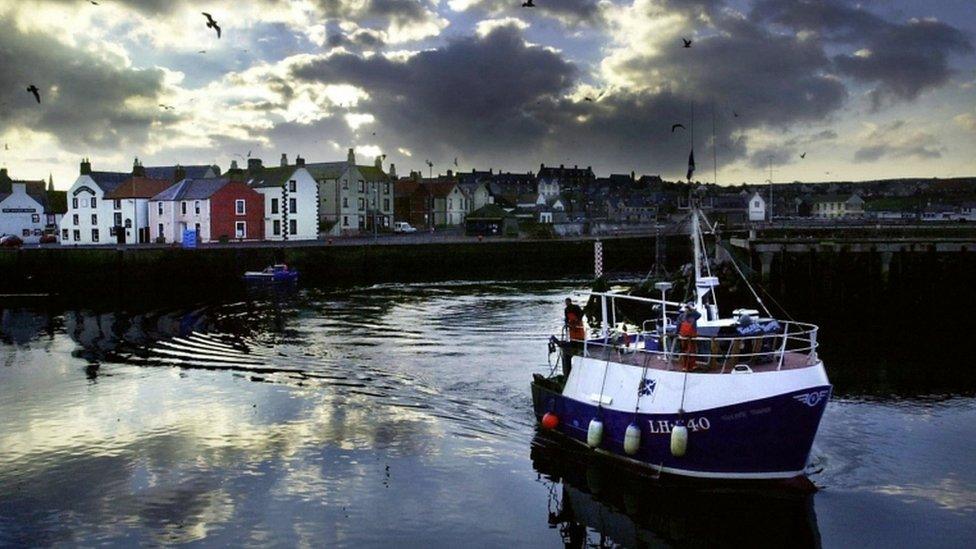
The fishing industry has found itself at the heart of the debate over Brexit and the prime minister's draft deal. But how did a sector which accounts for about 0.1% of the UK's economy become such a big issue?

Whale or minnow?
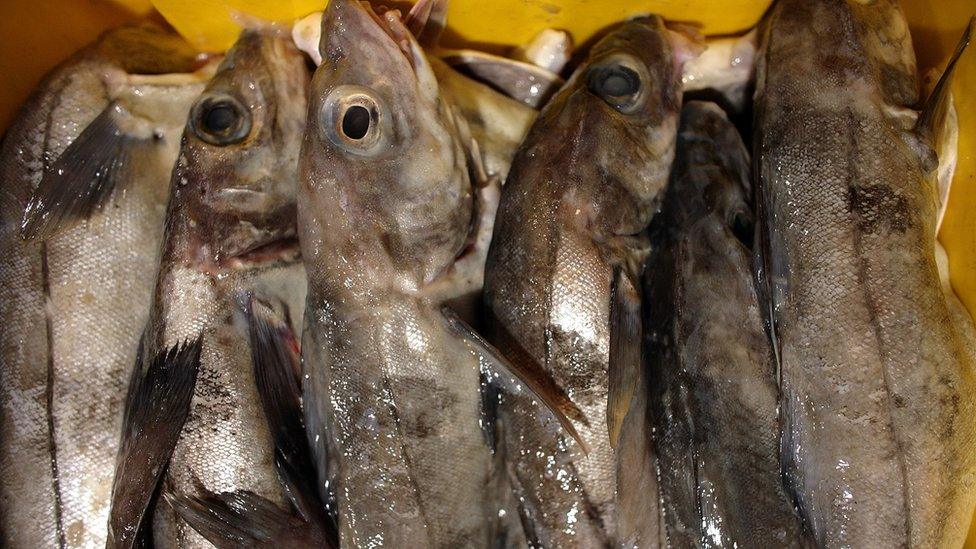
Less than 0.1% of workers are employed in the fishing indusrty
A Commons research library, external briefing reckons the UK's fishing and fish processing industries employ a total of 24,000 people, and contribute £1.4bn to the UK economy.
Yes, that's a lot of jobs and a lot of money. But it's a drop in the ocean when you consider that it's 0.12% of the overall economy, and less than 0.1% of the 33 million strong national workforce.
In terms of economic impact (measured by gross value added, or GVA), the timber industry, external has similar heft.
Indeed, looking at the latest statistics for GVA by industry, external, almost all of them are bigger than fishing.
The leather goods industry is slightly larger - and given its reliance on European markets, could be as significantly affected by Brexit as fishing. Equally the travel agency industry is also watching political proceedings with interest, and is worth significantly more in GVA.
And yet, we don't hear backbench MPs fretting about the future of woodworking, or writing to the prime minister to demand a good deal for tanners. We don't even hear as regularly about the financial services industry, which is worth £119bn, external (or 6.5% of economic output).
So why does fishing have so much pull?

Local significance
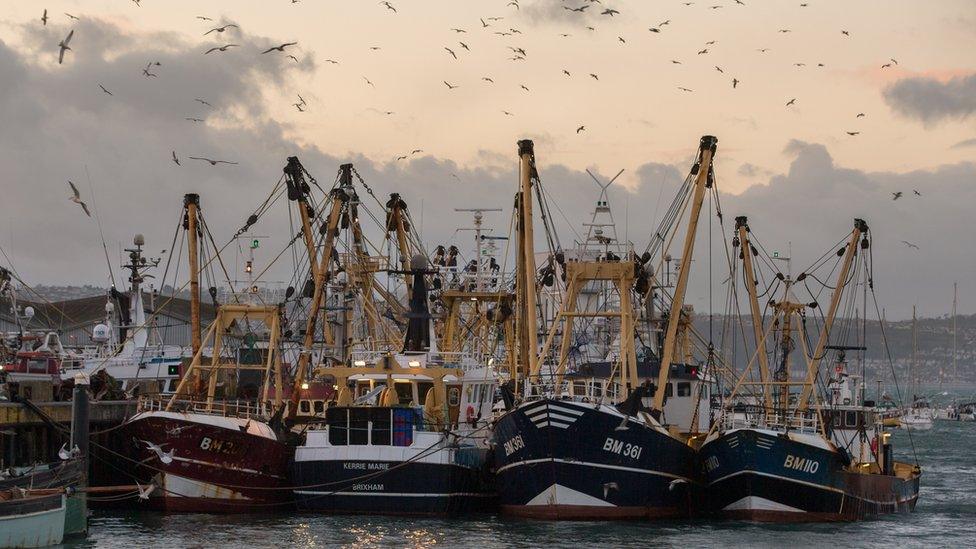
The fishing industry is worth more than a billion pounds - but is still dwarfed by many others
The difference between fishing and industries like wood processing can be found in their histories and its geographical concentrations.
By and large, if you're going to go fishing, you need access to the sea. So the actual fish-catching infrastructure is packed into a few small areas - particularly in Scotland, which has 53% of the entire UK industry.
While it might make up a small sliver of the national workforce, the industry dominates some coastal communities in places like Peterhead. This means any changes in its fortunes have a very noticeable impact - similar to the way the downturn in the oil industry was particularly stark in Aberdeen.
The history of the fishing industry also gives it a firm hold on the heartstrings of a nation which up until quite recently claimed with some justification to "rule the waves".
On top of this, the industry has a powerful lobbying presence - Scottish Fishing Federation chief Bertie Armstrong has a keen eye for a media opportunity, and has become a more prominent figure in the current political debate than quite a few cabinet ministers.

Where does Brexit come in?
Argy-bargy: Brexit armada vs Remain fleet
The fishing industry played a fairly major role in the Brexit campaign - and was central to one of the weirdest moments in the build up to the referendum, when Nigel Farage and Bob Geldof engaged in a sort of nautical battle on the Thames.
The industry became a symbol of dissatisfaction with the EU, an illustration of the "take back control" narrative of the Leave campaign. It was a tangible example that people could point to - the UK would literally be reasserting control over its waters by exiting the unpopular Common Fisheries Policy.
The 2017 election had an impact too, when the Scottish Conservatives swiped a series of coastal seats from the SNP - prising Moray away from the SNP's then deputy leader Angus Robertson, and overturning an enormous majority in Banff and Buchan.
The 13 Scottish Conservative seats won at Westminster election helped keep Theresa May in Downing Street (albeit with a crutch in the form of the DUP).
But this has become a double-edged sword for Mrs May when it comes to selling her Brexit deal, as it has magnified the influence of members who represent fish-heavy constituencies.
The Scottish Conservative MPs wrote to Mrs May making clear that they could only support her deal if it protects the fishing industry and guarantees a speedy exit from the CFP, and Mr Mundell has threatened to quit (although it's fair to say that opponents have questioned his sincerity).
Mrs May has managed to keep these concerns largely at bay, for now, by kicking the can down the road to future negotiations. But the topic continues to rear its head constantly.
During her latest Brexit statement in the Commons, the prime minister discussed fishing with 11 different MPs. Only the Northern Irish backstop rears its heads as often when it comes to gripes about her draft deal.

Do we eat the fish we catch?
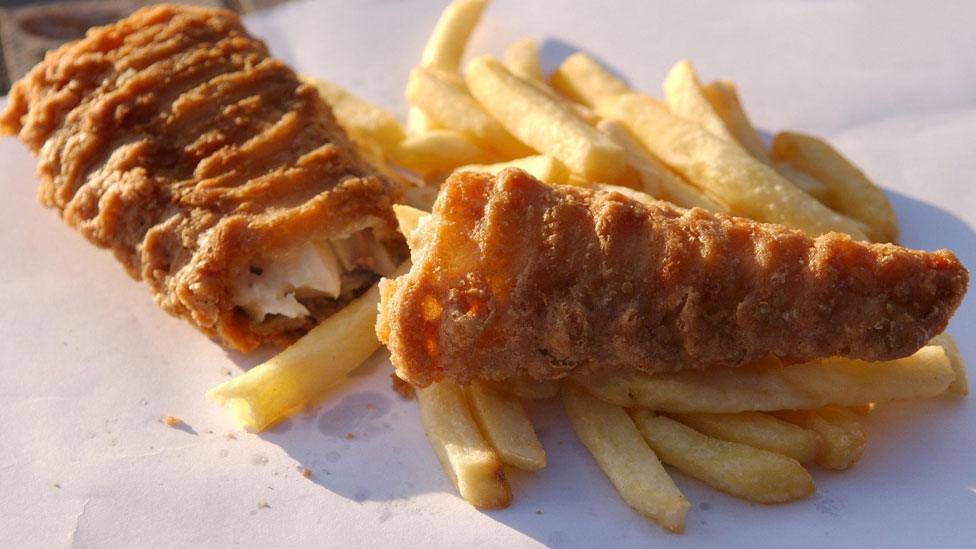
The cod we eat in our fish supper will typically be imported
The symbolic value of fishing in the Brexit debate is chiefly about the catching of fish, given the ongoing row over whose boats will get to go where (and how much they'll be allowed to catch).
But just as important as the catching of fish is the selling of it.
For an example, let's look at the battered (or breaded) heart of the iconic British fish supper, cod and haddock.
These fish only make up a small slice of the UK catch - 5% is cod, 7% is haddock. And the majority of the stuff actually eaten here is actually imported - 83% of the cod consumed in the UK is shipped in from abroad, alongside 58% of the haddock.
What the UK fleet actually catches a lot of is herring - and 93% of it is exported, mostly to Norway and the Netherlands, where people have much more of a taste for it.
So, while the most regularly-cited issues are quotas and access, future trading arrangements are also going to be a big deal when it comes to fish.
Basically, even if Mrs May's deal makes it through the Commons, we won't have heard the last of fishing.
- Published28 November 2018
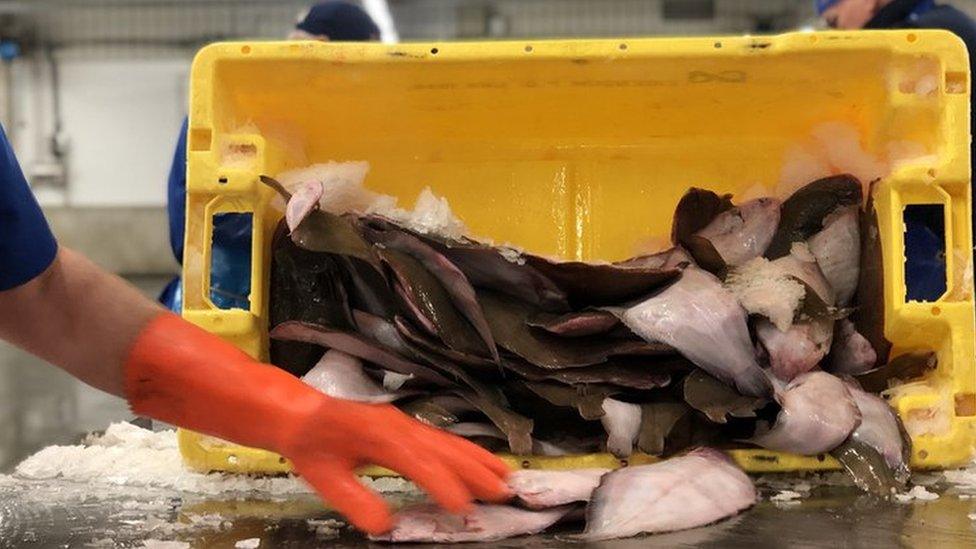
- Published25 November 2018
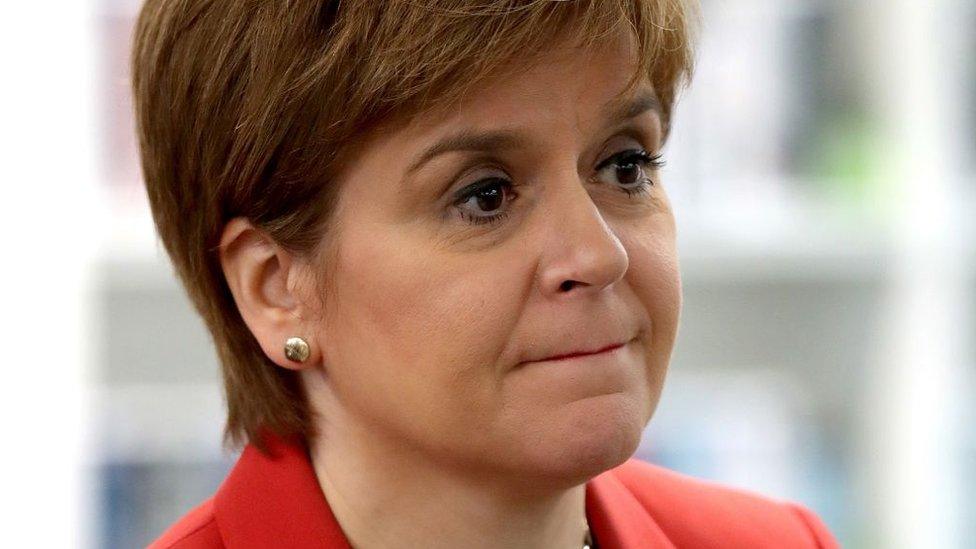
- Published22 November 2018
